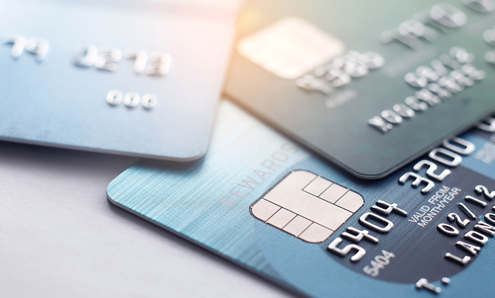The aim of the game for small businesses is to take as many payments as possible, right? But part and parcel of that is that those payments are safe and secure for both you and your customers.
Failure to offer safer payments could not only cost you a pretty penny but perhaps more importantly, it could do serious reputational damage to your business and cost you future sales too.
Developments in the payments landscape have made it easier than ever to offer safer payments thanks to the likes of card machines, and as a result of COVID-19 safer payments are no longer an option but a necessity.
In this article, we’ll explain why card machines are more secure for both you and your beloved customers plus the safety features embedded in these nifty bits of kit.
Safer for you
Let’s kick things off by going over the five safety benefits card machines can offer you, the business owner.
1. Less cash lying around
If you don’t accept card payments and instead stick to cash only, that inevitably means you’ll have more cash lying around your premises and this can be a precarious situation.
Firstly, it leaves you open to burglary - in one dramatic example from across the pond a cash-only business suffered five robberies in just four months and subsequently made the leap to card payments.
Not only that but there’s the potential to misplace your takings, miscount them, plus you’ve got to make time to get to the bank to deposit your hard-earned dosh, and that can be a hairy journey, to say the least!
2. Reduce staff theft
We’ll start this point off by hitting you with a staggering stat - British businesses lose a whopping £190 million per year to staff theft.
Naturally, no business owner wants to believe their workforce is capable of such behaviour, but the unfortunate fact is it happens. Dipping into the company pot is simple when there’s cash up for grabs, but with card machines and plastic payments, it becomes much trickier.
If you pair your card machine up with an EPOS system you’ll get your hands on integrated payments and these make card payments even safer still, eliminating the possibility of a staff member keying in a reduced price for an item for personal gain.
3. Eliminate human error
We’re all human and capable of making mistakes, it’s a fact of life and anyone who tells you otherwise is fibbing. So, when it comes to transacting with cash a sleep-deprived checkout assistant, for example, or an employee rushed off their feet with a mounting queue, could easily (and innocently) hand back a £20 note when it should have been a £10.
Enter the hero of the hour, the card machine, which cuts out this risk - there’s no physical tender to distribute and little room for error. Not only that but tallying up the sales at the end of a shift is laborious, to say the least, but with a card machine (like ours) you’ll have a record of all your sales and transactions at your fingertips, hooray!
4. COVID
The dreaded C-word, COVID-19, has made us a nation of hygiene experts and driven many Brits to be afraid of handing notes and coins for fear of the transmission risk they carry - card machines, on the other hand, don’t require the back and forth physical interaction of cash and can be easily disinfected between uses.
Furthermore, with social distancing fast becoming the new norm, card machines make complying with the rules a doddle. Unlike cash which demands payer and payee come within arms reach of each other (short of throwing the money at the payee), card machines can be easily placed two-metres away from the sales clerk.
5. Fraud
The security packed into the best card machines on the market is now tighter than ever before and continually evolving to tackle the newest threats to payer security.
The likes of encryption, tokenisation, and chip & pin security (we’ll delve more into these later) make it nigh on impossible for anyone with malicious intentions to get their grubby hands on the sensitive cardholder data held in your systems and do potentially irreparable reputational damage to your business.
Cash can’t offer these security features, in fact, it’s particularly susceptible to fraud - last year alone 427,000 counterfeit bank notes (equivalent to £9.8 million) were taken out of circulation in the UK. It’s not always easy to notice if you’ve been handed a dud, fraudsters are growing increasingly sophisticated, and it could cost you.
Safer for your customers
It’s not just safer payments for you that’s on offer with card machines, but the bread and butter of your business, your customers, too. Here’s why:
1. They carry less cash
Just as you’d have less cash lying around your premises if you accepted card payments, your customers would need to carry less cash on their person if they could pay on plastic, and that’s a big benefit to personal safety.
Again, it’s not pleasant, but robbery happens and consumers are increasingly afraid of being a target of such an ordeal if they’ve got cash on them. Moreover, shoppers are becoming wary of withdrawing notes from ATMs after fraudsters developed techniques for cloning their details or even stealing their card when entered in the machine.
Once cash is gone it’s very difficult to get back. With a card, it’s a piece of cake to ring the bank and cut off the culprit at the source. Plus, even if they did a dash to the nearest retail outlet and attempted a spree they’d be limited to the £100 contactless limit.
2. Fraud
The safety features inherent in card machines protect your customers just as much as they protect you. If we take just one feature, chip & pin, as an example, it eliminates the possibility that a criminal could waltz into a shop and spend big money in someone else’s name.
3. COVID
We’ll make this point again because safer payments relating to COVID is big news right now in light of the government’s guidelines stipulating businesses tighten the safety around consumer payments.
It’s no secret that UK consumers are spooked - sales figures and the dramatic increase in online shopping stats speak for themselves - shoppers are willing to give up on a purchase altogether if they don’t feel their safety is protected.
Having a card machine allows you to offer safer payments. All our card machines are set up to accept contactless and mobile payments (Apple and Android pay, for example) and the prevalence of these has exploded in the wake of COVID - in fact, it’s up 31%, adopted by two-thirds of adults, and the adoption of the increased spending limit has been staggering.
Card machine safety features
Next let’s take a look at the clever safety features embedded in our card machines.
PCI compliance
PCI DSS is a set of security standards created to protect businesses and consumers against fraud. Any business that accepts card payments must be compliant in order to do so, and on our end, all four of our market-leading card machines are fully PCI compliant too.
Chip & pin
With chip and pin, customers are required to enter their four-digit personal identification code when authorising a transaction. This code is unique and only known to them, meaning anyone else who gets their hands on their card is unable to authorise payments above the £100 contactless threshold.
The chip interacts with the card machine and begins to process the transaction using a very clever technique called encryption...
Encryption
Encryption involves replacing the customer’s 16-digit personal account number, or PAN (the long number on the front of the card), for a jumble of randomly generated alternatives.
These encrypted details cannot be deciphered by anyone but the issuing bank on the other end, meaning they can’t be descrambled by a fraudster and linked back to the customer’s bank details, rendering the transaction tamper-proof.
Contactless limit
As we’ve alluded to, the limit placed on contactless payments exists to prevent debit and credit card fraud. So, if a thief was to get their mitts on someone’s card (which has contactless enabled) they wouldn’t be able to spend more than £100 in one transaction, limiting the amount of damage they could do.
Not only that, but banks will typically ask cardholders to enter their pin every once in a while to ensure it’s actually them conducting the purchase, meaning a thief would be halted in their tracks if they got as far as making multiple contactless payments.
Tokenisation
Card machines, or at least our card machines, don’t only accept debit and credit card payment but payments using mobile wallets too, like Apple and Android Pay via smartphones and watches.
In these instances, a security feature called tokenisation comes into play. It’s similar to encryption but arguably even more secure - tokenisation substitutes the sensitive card information for an algorithmically generated number which can be deciphered by the issuing bank but is never mathematically reversed.
What does that mean? That the aforementioned PAN data is never displayed - you can find out all about tokenisation in our comprehensive guide.
Our card machines
We’re going to be bold and assume the idea of safer payments using card machines has convinced you of their value. So, let’s take a whistlestop tour of the card machines we offer here at takepayments.
- Countertop - our countertop machine plugs into your broadband or phone line, accepts all leading debit and credit cards and mobile wallets, is contactless-enabled, PCI compliant, and a breeze to set up. Plus, it boasts an ample two-metre cable allowing for safer socially distant card payments.
- Portable - our portable machine does all of the above but without the need for cables at all. It has an impressive 50-metre range and is powered by Bluetooth, allowing you take payments from anywhere within your business, making the likes of table service-only a piece of cake. Then at the end of the day, all you need to do is pop it on its charging base.
- Mobile - our mobile machine, again, has all the same features except there’s no limit to where you can accept card payments from. It works using 4G, GPRS, and a sim card much like a phone, allowing you to take payments from anywhere in the UK. It comes with a charging base that you can leave at home or work and a USB cable for emergencies.
- A920 touchscreen - last but not least is our hot off the press A920 card machine. It has a glass touchscreen surface for effortless cleaning between uses, allows you to add up to six users and allocate them individual tips, gives you access to online reporting as standard, is sleek and stylish, and you can opt to upgrade to the mobile version if you want to take it on the road.
Ready to dive into the world of card machines? Chat to one of our friendly experts today and we’ll have you up and running with safer payments in no time.



